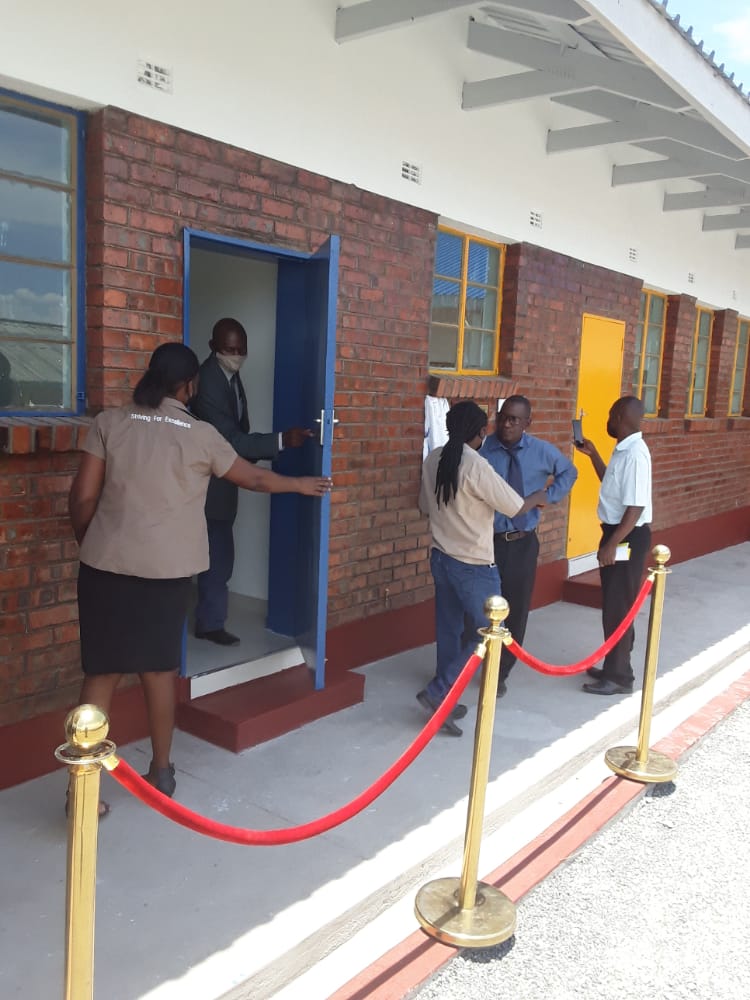|
Getting your Trinity Audio player ready…
|
By Calvin Manika
The Minister of State and Devolution for Matabeleland North Richard Moyo has officially opened an Early Childhood Development (ECD) at Nechibondo Primary School in Hwange this afternoon. The project which was financed by the devolution funds was spearheaded by the Hwange Local Board through a contractor AFRICA AT LARGE construction.
Speaking to the delegates Minister Moyo expressed confidence in the Hwange Local Board.
“The ECD is expected to play a pivotal role towards improving the education sector in Hwange.
“Construction of this block is a clear indication that Council and its community is moving together with Government’s vision where education should be used as a vehicle for employment creation and to revive the country’s economy,” said Moyo.
In November 2020 the Minister Moyo represented by a director in his office toured Hwange after several visits made by the minister to acquaint him with economic activities and investment opportunities in the coal town.
The tour which saw the delegation visiting Empumalanga local board clinic also included touring of Nechibondo primary school in the oldest suburb of Empumalanga.
At Nechibondo Primary School the team toured the land which had been set aside for the construction of an ECD Block.
Due to the huge enrollment of ECD at Nechibondo School, pupils were forced to take turns in attending classes.
Nechibondo Primary School ECD enrollment is at 186 learners with a staff compliment of 6 teachers.
According to the Ministry of Primary and Secondary Education policy these learners constitute of 9 classes which means the school needs to have 9 ECD classrooms.
Minister Moyo said the construction of the new block has reduced the mounting pressure in as much as enrollment is concerned.
“The construction of this block will bring some relief, and set the standard for other local authorities. I urge the urge the business community and other stakeholders to complement government’s efforts by donating furniture and other items for use in this ECD block so that it can open its doors to pupils in 2022.”
Devolution programme entails the principle of empowering provincial government councils to spearhead economic and social development projects in their areas by leveraging on local resources.
The emphasis is on economic development and not political power, which remains in the hands of central government, under the country’s unitary state structure. Devolution is outlined in the new Constitution of Zimbabwe of 2013. Chapter 14 of the 2013 Constitution provides for provincial and local governments.
The preamble of section 14 states that there must be devolution of power and responsibilities to lower tiers of government in Zimbabwe to ensure the preservation of national unity in Zimbabwe and the prevention of all forms of disunity and secessionism; the democratic participation in government by all citizens and communities of Zimbabwe; the equitable allocation of national resources and the participation of local communities in the determination of development priorities within their areas.
